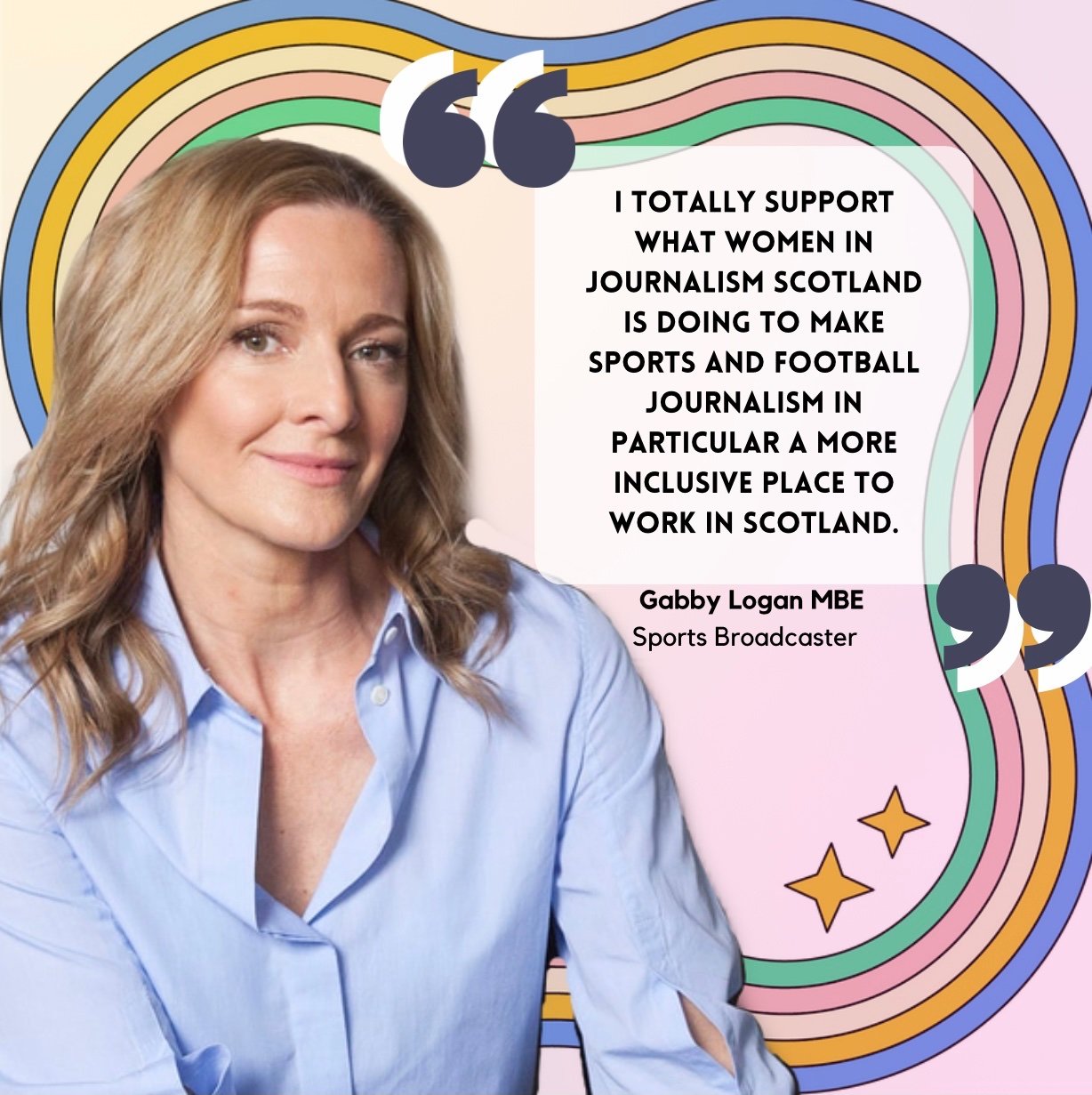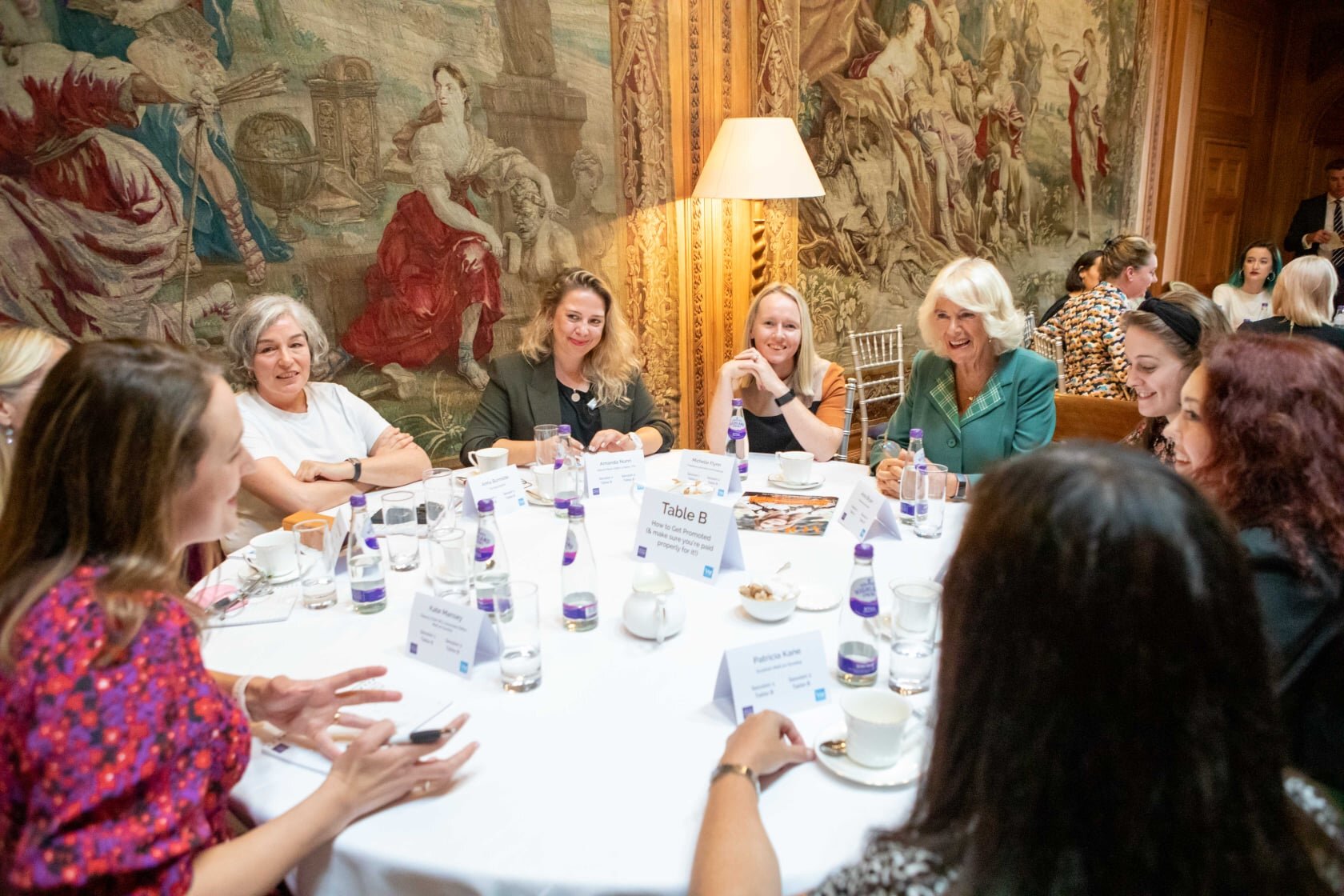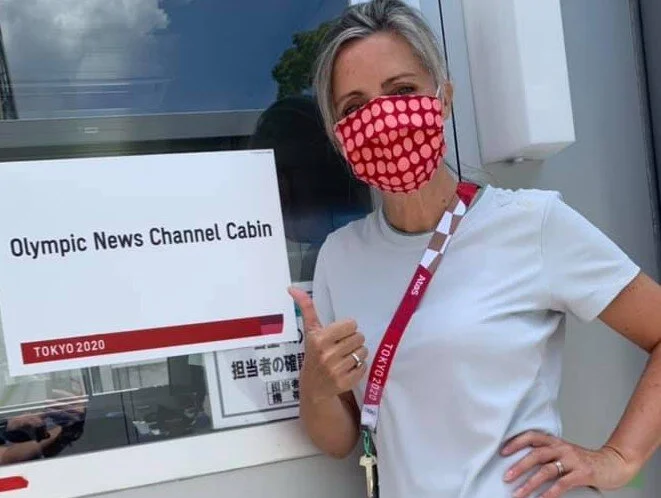Women in Journalism Scotland has partnered with Pass the Mic this year to amplify the voices of women of colour in the Scottish media.
Here Juliana da Penha, a freelance journalist from Brazil based in Scotland, writes about the need to embrace migrant and refugee women in the discussions about diversity in the media.
Juliana is founder of Migrant Women Press, an independent digital media focused on women's experiences with migration and displacement. She holds a Bachelor degree in Cultural Studies and Communication and Masters Degree in Human Rights and International Politics.
Fair media coverage will tell diverse stories and, at the same time, guarantee that marginalised voices, such as migrant, refugee and asylum seeker women, will sit at the table during editorial decision making. Migrant women are not only passive sources in the news headlines; they are also skilled journalists and storytellers, with an additional advantage: lived experiences.
The conflict in Ukraine has highlighted why a respectful, kind and empathetic public narrative around migration is needed. We see families who have been displaced overnight in need of open borders and open minds.
“We need more than single stories which tick a box...we need consistent and fair representation. ”
Migration remains the leading topic in newsrooms in the UK though recently, there has been a clear shift in the media discourse. The apocalyptic narrative of invasion, the spread of fear, anti-immigration rhetoric and a constant misunderstanding about migration and asylum were suddenly replaced by a message of solidarity, and empathy, emphasising the need to welcome and support refugees. Unfortunately, not all refugees receive the same treatment, especially when their skin is dark.
The hysteria and fear created by misinformation in our news have created hostile Westminster immigration policies and caused the deaths of innocent asylum seekers on our shores. Inhumane immigration policies such as the UK Nationality and Borders Bill, criminalising anyone arriving in the UK to claim asylum without a pre-approved claim, raise serious concerns about refugees' human rights.
The public sentiment separating the "good" and "bad" refugees reveals how structural racism and the immigration system are interrelated oppressing non-European asylum seekers; they are still not welcome in Europe.
Migration experiences are complex and varied: people can be the first, second and third generation of migrants, migrant workers, students, asylum seekers, and refugees. People move to reunite with their families and follow their loved partners. People flee war, persecution, and various types of violence, like gender-based violence and poverty. People run from natural disasters and climate change. People also look for better opportunities and safe places to raise their children.
Migrant and refugee women face different levels of oppression during their journeys, including gender-based violence, racism, and xenophobia. An intersectional approach is essential to understanding the specific issues women from other ethnic groups, sexual orientation, gender identities and women with disabilities might experience during migration and displacement.
Besides the "feminisation of migration", a term used to demonstrate how since the 1980s, the number of women on the move increased, growing faster than the number of male migrants, the experiences and contribution of migrant women have been largely overlooked in the media.
One of the reasons for the failure of fair media coverage and a constructive narrative around migration is the lack of diversity in the newsrooms. A 2021 NCTJ report on Diversity in Journalism reveals that although more women than men work as journalists (53 per cent compared to 47 per cent), 92 per cent of journalists come from white ethnic groups. Moreover, 90 per cent of journalists were born in the UK, with five per cent from the EU27 and five per cent from the rest of the world. This research is an example of the amount of work still to be done to guarantee diversity in the British media.
“I brought almost ten years of experience as a reporter in my luggage...but could not work in journalism for many years.”
Although we can see more diverse voices, the proportion is still low. Having only a few marginalised voices in the mainstream media reflects on the important lesson the author Chimamanda Ngozi Adichie gave us about "The danger of a single story". We need more than single stories which tick a box of diversity; we need consistent and fair representation.
When I left Brazil, I brought almost ten years of experience as a reporter in my luggage. However, I could not work in the journalism field for many years. It was tough to enter in the industry in Europe for many reasons, such as language barriers and discrimination, which impacted my self-confidence. On the other hand, this experience pushed me to reinvent myself and I understood that I was not alone. So, I decided to create a platform to connect with other migrant women through Journalism and founded Migrant Women Press, an independent digital media focused on women's experiences with migration.
As a black migrant woman and journalist, I recognise the efforts of women individuals, groups, and organisations to challenge these barriers and open doors for more women like me in mainstream media. I am glad projects such as Pass The Mic exist, as it is changing the media landscape in Scotland, creating spaces for women of colour voices to be heard.
I celebrate every diverse voice I see in the media, especially women of colour, migrants and refugees. But I also keep in mind a quote found in the book "Crusade for Justice" an autobiography of Ida B. Wells, an African American pioneer in investigative journalism, newspaper editor, educator, anti-lynching, and women's rights advocate: "Eternal vigilance is the price of liberty".
In a society built on unequal power structures, bringing diversity to media is an ongoing work in progress.































